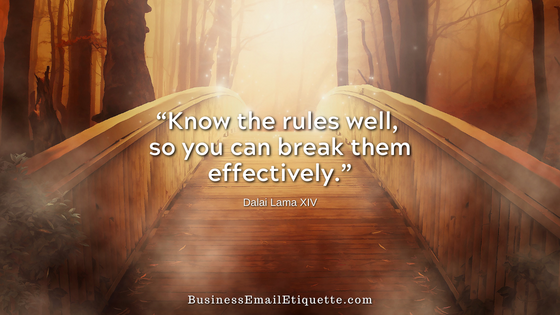Avoid Sarcasm in Business Email

Sarcasm with the written word is a skill many of us do not possess. The problem is that using sarcasm in your business email can be misperceived as rude, terse, or worse.
If you are not careful, that sarcasm can be amplified more than you expect. Based on the situation and the emotions involved, the recipient may read into your sarcastic comment a meaning that you did not intend. Or much more than you intended!
You could send that very same sarcastic comment to 5 different contacts. Only to find that each imparts a different perception of your words. Their reactions will be based on their relationship with you, how well they know you, and the topic at hand.
Why Avoid Sarcasm in Business Email Communications?
What about emoticons in business email?
I’m not a fan of emoticons in business emails, but when joking or using sarcasm, it often helps to include a winky face — ;). Especially if you do not use emoticons regularly.
Doing so will make it very clear that “I am joking!” to make sure the other side knows you are kidding. Otherwise, you risk your comment being taken at its face value.
In professional communications, sarcasm (and emoticons) should generally be avoided. After decades of emailing, I’ve yet to see a situation where sarcasm enhanced or contributed to a conversation. On the contrary, more often than not, it exposed a level of unprofessionalism that reflected poorly on the sarcastic person.
Instead, it either exacerbated the situation, reflected a lack of seriousness, or “rubbed salt in the wound.” None of which is good for business communications or how those involved will perceive you.
Wait and Reconsider
If you’re being sarcastic in an email, read it aloud before sending. Twice to be sure.
Does it sound the way you want it to? Better yet, if you’re trying to be funny, think hard and long about whether the other person will appreciate your sense of humor.
Trust me; you’ll be glad you did.







